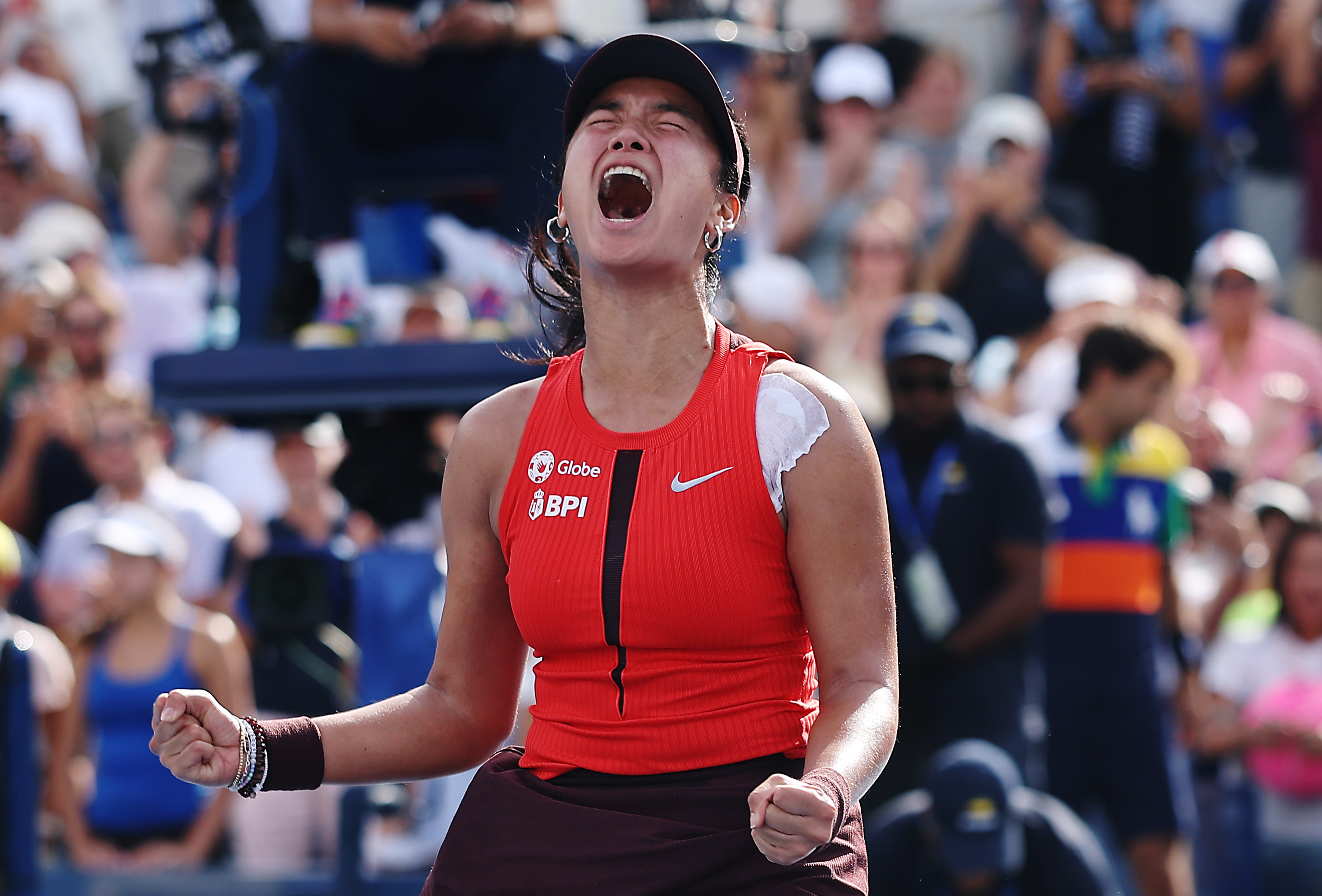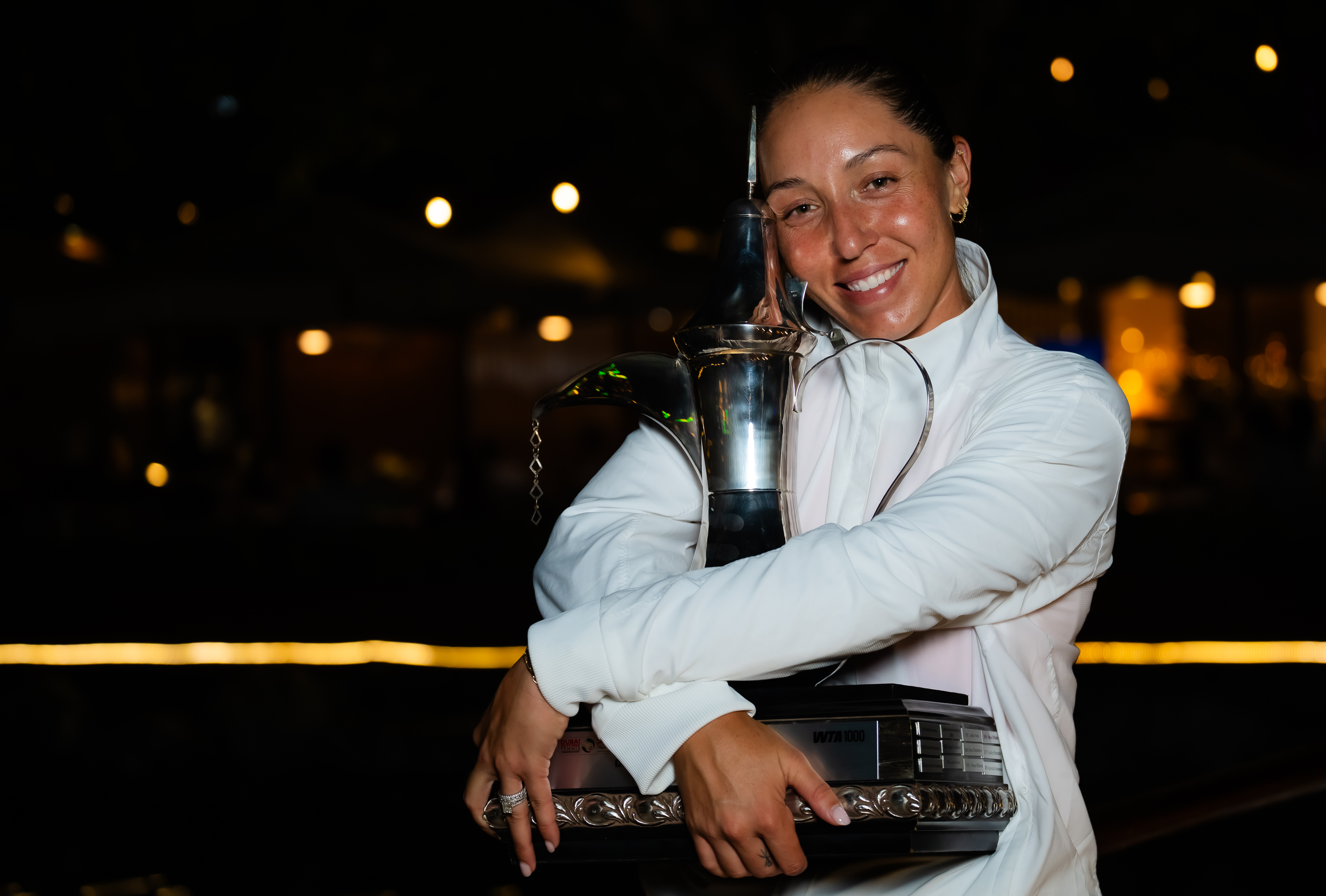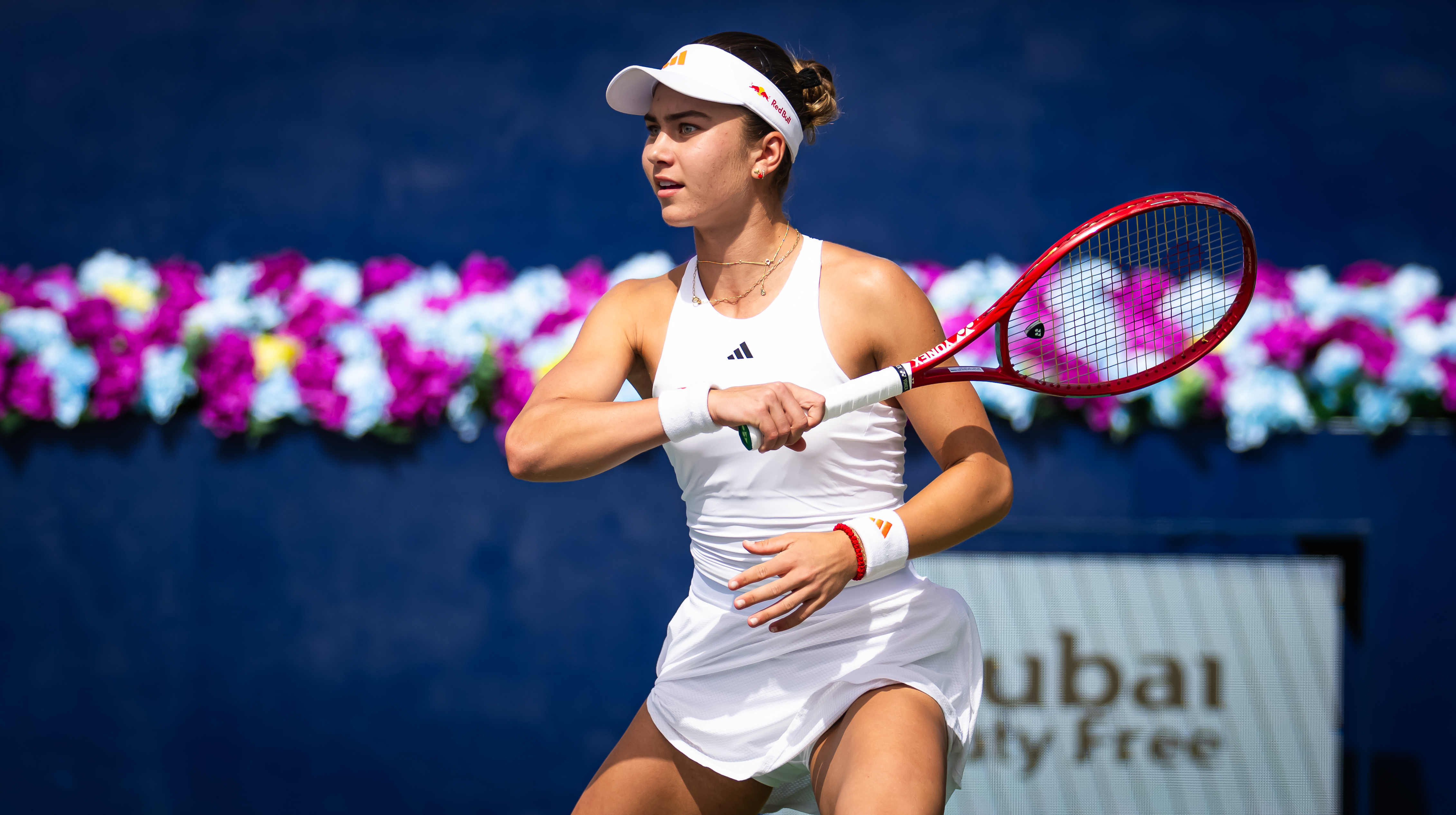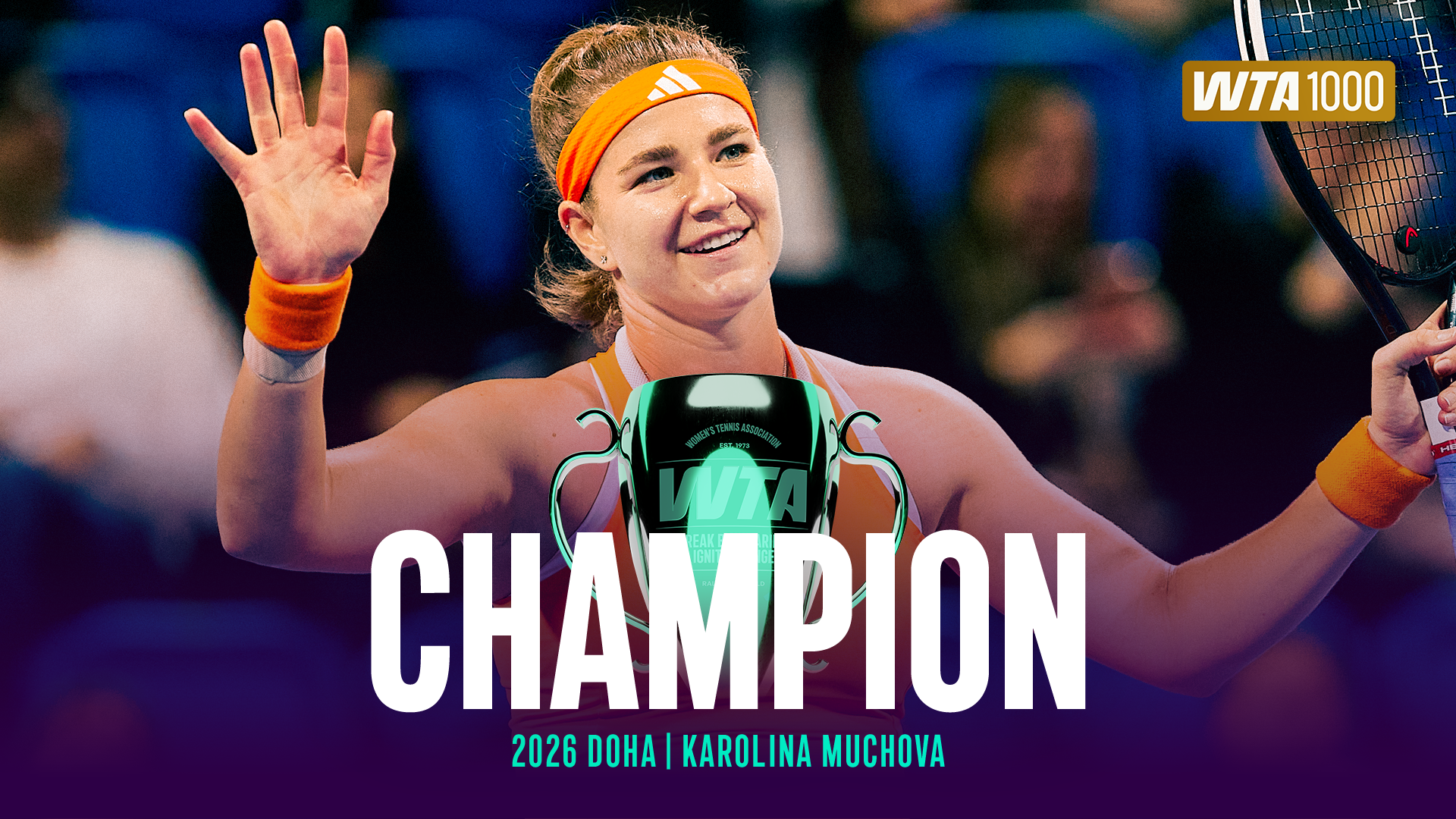Comebacks and craft defined WTA’s 2025 thrillers
As the 2025 WTA season drew to a close with five champions across the majors and Finals, the year’s best matches pulsed with raw resilience and sly adjustments, turning deficits into triumphs on courts from New York’s hard slabs to Paris’s red dust.

The 2025 WTA tour wrapped in Riyadh with a rare balance, five players splitting the four Slams and the year-end title amid a calendar that swung from Australian hard courts through European clay and grass before circling back to Asia and North America. This parity sharpened every contest, where mental resets and surface-specific tactics decided fates in a season brimming with depth. Offseason now invites a rewind to those clashes that captured the tour’s electric unpredictability, from stifled roars in packed arenas to quiet shifts under home lights.
Resilience turns tides in New York
Barbora Krejcikova’s fourth-round US Open escape against Taylor Townsend unfolded under Arthur Ashe Stadium’s glare, the Czech dropping the opener 1-6 as the American’s powerful serves and inside-in forehands fueled early-tournament fervor. Townsend, the crowd’s breakout star, squandered eight match points in a second-set tiebreak that dragged to 13 points, her aggressive one-twos meeting Krejcikova’s scrambling crosscourt replies and timely underspin lobs that disrupted rhythm on the hard courts. The decider fell 6-3 to Krejcikova, a hard-earned rebound where composure outlasted the home surge, leaving Townsend’s push as a poignant what-if in the major’s charged opening week.
Brad Kallet recalls the pulse-racing intensity of that 1-6, 7-6 (13), 6-3 victory.
It wasn’t the most high-profile match of the year, but no contest had my heart beating a million miles a minute quite like Barbora Krejcikova’s 1-6, 7-6 (13), 6-3 win over Taylor Townsend in the fourth round of the US Open. The darling of the tournament in its first week, Townsend failed to convert eight match points in a raucous Arthur Ashe Stadium that was waiting to erupt. And these weren’t flubs from Townsend. They were excellent, hard-fought points that Krejcikova won. It was a heartbreaking ending for the American and a Grand Slam-worthy comeback from the Czech, on perhaps the most exciting stage in tennis.
Later in the same draw, Alexandra Eala stared down a 5-1 third-set hole against Clara Tauson in her opener, the Filipina’s deep crosscourt backhands and varied pace pulling her level without yielding a match point over two and a half hours. She sealed 6-3, 2-6, 7-6 (11) on her fifth chance in the tiebreak, a breakthrough as the first from the Philippines to claim a Slam main-draw win in the Open era. Noah Poser points to this grit over her Miami semifinal surge, the New York hard courts amplifying Eala’s belief as she extended rallies to expose Tauson’s frustration.
Veterans weave artistry on shifting surfaces
Tatjana Maria and Laura Siegemund, both 37 and the tour’s oldest top-100 players, carried grass-swing magic into Montreal’s first round, their slice-and-volley duels born from junior-era familiarity turning a hard-court opener into a three-hour, 26-minute showcase. Siegemund’s subtle underspin and net poaching edged Maria 7-5 in the first, the German adapting half-volleys to the quicker bounce after Maria’s crosscourt chips pinned her early. The second-set tiebreak fell 6-7 to Maria before Siegemund’s drop-shot one-twos clinched the decider 7-6 (2), a tactical edge that highlighted how decades of matchup insight buffered the season’s grind.
Alex Macpherson crowns this as the year’s finesse pinnacle.
Tatjana Maria and Laura Siegemund were two of the MVPs of the grass swing, with the German veterans -- the two oldest players in the Top 100 -- slicing and volleying their way past a slew of more powerful Top 10 opponents to the Queen’s title and Wimbledon quarterfinals, respectively. A couple of weeks later, the two 37-year-olds were pitted against each other in the Montreal first round. They knew each other’s games inside out -- they’d been playing against each other since they were children -- and naturally, it was a classic. The wildly entertaining 3-hour, 26-minute feast of finesse, tactics and net play went down to the wire before Siegemund emerged a 7-5, 6-7 (6), 7-6 (2) victor. For tennis fans who value artistic appreciation, this was the season’s masterpiece.
Across the Atlantic at Roland Garros, Iga Swiatek trailed Elena Rybakina 6-1, 2-0 in the Round of 16, her 27 unforced errors through nine games shattering a 24-match clay streak after three straight titles. The Pole looped high topspin to disrupt the Kazakh’s flat inside-out winners, snaring six of the last seven second-set games for 6-3 before a love hold at 5-5 in the third set’s 4-4 deadlock unleashed crosscourt forehand bursts to break the tour’s top server. Cole Bambini hails the 1-6, 6-3, 7-5 thriller’s two-and-a-half-hour arc as a clay-court reset, Swiatek’s adjustments turning the red dust’s slide into her weapon amid mounting pressure.
Youth and guile upend power narratives
In Wuhan’s indoor hard-court semifinal, Aryna Sabalenka’s 8-2 head-to-head lead over Jessica Pegula promised extension of her 20-match event streak, the world No. 1 ripping the first set and breaking early in the second with thunderous serves and inside-out forehands. Pegula stepped inside the baseline to redirect pace crosscourt, leveling at 7-5 before her short-angle counters forced errors in a third-set tiebreak she dominated 7-2, the American’s flat backhand returns thriving on the surface’s speed. Greg Garber views this as Pegula’s top-shelf proof, far beyond recency, a tactical solve that reshaped late-season hierarchies.
BREATHTAKING 💪
Jess Pegula battles back from a set down against Sabalenka to win the deciding tiebreak 7-2. An absolute classic in Wuhan!
#WuhanOpen pic.twitter.com/bEXfnfZKnC— wta (@WTA) October 11, 2025
Victoria Mboko’s Montreal final against Naomi Osaka pitted an 18-year-old in her first big title match against a four-time major winner on home hard courts, the Canadian dropping 2-6 before sharpening groundstrokes and serves with deeper returns to match the crowd’s swell. Having toppled three other Slam champions that week, she blended composure and pace variation to cap the upset, her maturity hinting at a rising force amid national roar. Matt Wilansky frames this as less shock than signal, Mboko’s poise weaving into a tour where emerging talents redefine paths.
These 2025 standouts—from Krejcikova’s stadium silence to Mboko’s home ascent—spotlight a season where mental edges and surface savvy fueled parity, setting the stage for bolder disruptions in the year ahead. For more reflections, delve into the best moment of ‘25, the best tournament of ‘25, and the biggest surprise of ‘25.


